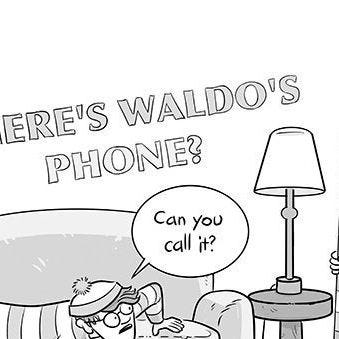In defense of keeping that frown upside-down
Plus, a trick to boost creative thinking
“We can intentionally direct our mind. And when we do, the capabilities that are unleashed are really quite extraordinary.” —psychologist Richard Davidson
BRAIN WAVES
The upside of anger. A little negativity isn’t always a bad thing. In a new paper, professors Timothy Munyon at the University of Tennessee and James Summers at Iowa State University argue that negative emotions can be useful in team settings. To make their case, they turn to Hollywood movies. For example, they analyze a scene from the movie Braveheart in which Scottish leader William Wallace gives soldiers a speech. He says, “Fight and you may die. Run, and you’ll live, at least a while. And dying in your beds, many years from now, would you be willing to trade all the days from this day to that for that one chance, just one chance, to come back here and tell our enemies that they may take our lives, but they’ll never take our freedom!” The professors point out that Wallace turns his soldiers’ fear into anger, and this anger ultimately leads them to victory. “We know anger clouds our ability to cognitively process…but that’s not necessarily a bad thing all the time," said Summers. However, if we want to reap the benefits of negative emotions like anger, the first step is to acknowledge them. “If someone withdraws or is having a bad day, don’t ignore it or shrug it off — acknowledge it,” he says. “Only then can you help them shape that emotion into something that’s functional.”
Creative solutions. We think of creative geniuses as erratic, open-minded artist types who don’t follow conventional ways of doing things. But creativity is for everyone, and a new study suggests that people who don’t rank high in openness can tap into their creativity using cognitive reappraisal. The concept of cognitive reappraisal involves changing the way you think about a given situation, often as an emotional regulation strategy. In a study, volunteers watched a short film clip, and some of them were given various strategies to regulate their emotions while watching the clip. From there, they had to complete a creative task that involved generating ideas for a business. It turns out that the people who were prompted to use cognitive reappraisal had more creative ideas (as rated by outsiders). But this was only true for people who ranked low in openness on a personality assessment. In other words, “For people who are more conventional in their thinking styles and not as open to new ideas and experiences as other people, reappraisal boosted their creativity significantly,” said lead author Lily Yuxuan Zhu. “Our findings suggest that even conventional thinkers can become creative with some practice of flexible thinking.”
Hidden Brain+ is here! Do you love the ideas we explore on Hidden Brain and want more of them? Then please join Hidden Brain+, our new podcast subscription. You’ll find new episodes not available anywhere else, plus the chance to have your questions answered by the researchers we feature on the show. Find Hidden Brain+ on the Apple Podcasts app beginning today, and listen to our first two episodes for free with a seven-day trial.
ON THE HIDDEN BRAIN PODCAST
Seeking Serenity: Part 1: In graduate school, neuroscientist Richard Davidson learned to use scientific tools as a way to examine the brain. At the same time, he also started studying under master meditators — who deeply contemplated their internal and external lives. This week, two ways of understanding the mind.
Seeking Serenity: Part 2: In the second part of our series on the science of meditation, Richard Davidson continues his endeavor to unite seemingly opposite ways of understanding the mind. Plus, he shares the latest research on mindfulness, and the unexpected ways it can benefit us.
ON THE MY UNSUNG HERO PODCAST
Barbara Romero’s Story: Barbara spent years trying to understand her son's difficult behavior. Then a nurse said something that made her realize that it was no one's fault.
Don’t forget to send us the story of your unsung hero! Record a voice memo on your phone and email it to myunsunghero@hiddenbrain.org.
ON HIDDEN BRAIN+
The Case for Optimism: Why is it that we think of optimists as idealistic pollyannas who are out of touch with reality? We kick off our new Apple Podcasts subscription, Hidden Brain+, by chatting with Morgan Housel about our bias toward negativity — and how we can resist its pull.
Your Questions Answered: Bob Cialdini on Persuasion: We recently talked with psychologist Bob Cialdini, who has identified seven techniques that we regularly use to persuade other people to do something. Today on Hidden Brain+, Bob comes back to the show to answer listeners’ follow-up questions. We ask Bob how to use persuasion techniques to get our kids to do what we want. And we ponder how to use these strategies to get ourselves to do something we’re avoiding.
FROM OUR LISTENERS
MIND GAMES
What five-letter word becomes shorter when you add two letters to it?
LAST WEEK’S PUZZLE
What can you hold in your left hand but not in your right?
The answer: Your right elbow.
A MOMENT OF JOY
Have an idea for Hidden Brain? A story you want to share with us? Send an email to ideas@hiddenbrain.org. Listen to us on Spotify, Apple, Amazon Music or your favorite podcast platform.




